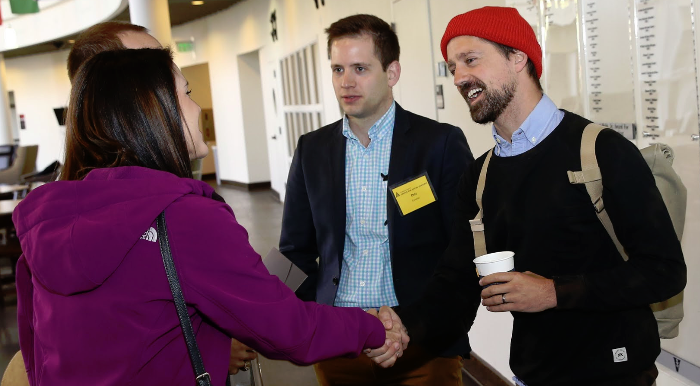Organizational Research

Participants meet at the Social Ventures Summit in 2016 at the business school.
Organizational researchers at the Owen Graduate School of Management like Tim Vogus study the roles of leadership, organizational culture and structure, and team processes that help individuals, teams and organizations thrive. Increasingly, organizational research has begun to explore how disabilities may be accommodated in ways that benefit employees and the organization.
Vogus, the Brownlee O. Currey, Jr. professor of management and faculty director of Leadership Development Programs, specifically notes that big questions remain largely unanswered. He said, “how do you create a more inclusive workplace for people on the autism spectrum? How can leaders lead and manage to create the conditions for success for individuals on the spectrum? What does leadership learn and gain from leading people on the spectrum? These are some of the questions we hope to answer.”
Vogus and other organizational scholars at Vanderbilt hope to learn more through research, focusing on these questions in the workplace. According to Vogus, a number of companies have engaged in pilot projects to make their workplaces more amenable to and successful with employing individuals on the autism spectrum with noteworthy programs at Hewlett Packard and SAP (an enterprise management software company). These early case studies suggest that top leader support, rethinking organizational assessments (such as those used in hiring), career development, training policies, and a supportive organizational ecosystem are especially important.
“There’s a sense among leadership that people on the spectrum have a lot of, and perhaps unique, talent that, if tapped properly, would be of tremendous benefit to these companies,” Vogus said. At this point, he continued, more systematic data with a more rigorous assessment and evaluation of the varied ways in which individuals on the spectrum can enhance their organizations is needed, as well as better identifying the conditions under which these employees thrive – the leader actions, coworker behaviors, and organizational practices and environmental adaptations best suited to meet their needs.
To learn more about the business school, click this link.
